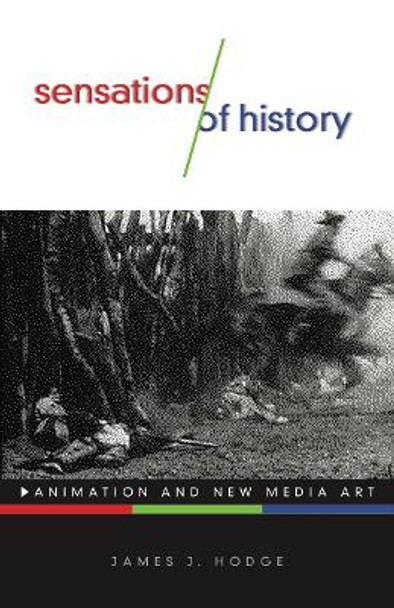Description
A phenomenological investigation into new media artwork and its relationship to history
What does it mean to live in an era of emerging digital technologies? Are computers really as antihistorical as they often seem? Drawing on phenomenology's investigation of time and history, Sensations of History uses encounters with new media art to inject more life into these questions, making profound contributions to our understanding of the digital age in the larger scope of history.
Sensations of History combines close textual analysis of experimental new media artworks with in-depth discussions of key texts from the philosophical tradition of phenomenology. Through this inquiry, author James J. Hodge argues for the immense significance of new media art in examining just what historical experience means in a digital age. His beautiful, aphoristic style demystifies complex theories and ideas, making perplexing issues feel both graspable and intimate.
Highlighting underappreciated, vibrant work in the fields of digital art and video, Sensations of History explores artists like Paul Chan, Phil Solomon, John F. Simon, and Barbara Lattanzi. Hodge's provocative interpretations, which bring these artists into dialogue with well-known works, are perfect for scholars of cinema, media studies, art history, and literary studies. Ultimately, Sensations of History presents the compelling case that we are not witnessing the end of history-we are instead seeing its rejuvenation in a surprising variety of new media art.
About the Author
James J. Hodge is assistant professor of English at the Alice Kaplan Institute for the Humanities at Northwestern University.
Reviews
"'Time,' wrote Gilles Deleuze, 'takes thought.' Sensations of History brilliantly lays out a new domain of temporal analysis, tracking how mediatic dimensions of time are at once enmeshed in and explicated by events of history. In a tour de force analysis of what can only be sensed in animation, James J. Hodge lets the other shoe drop: 'History now takes animation.'"-Thomas Lamarre, author of The Anime Ecology
"Sensations of History challenges common claims about the ahistorical tendencies of media, contending that digital artifacts are crucial to understanding historical experience in the twenty-first century. James J. Hodge supports this argument through original analyses of computational artworks, spambots, videogames, machinima films, and e-poetry. Throughout this book, thought-provoking encounters with digital media are also attempts to face a history characterized by deep opacity and multilayered ambivalence."-Patrick Jagoda, author of Network Aesthetics
"In a sophisticated and much-needed challenge to entrenched notions that digital media is ahistorical, James J. Hodge urges readers to address digital inscription as 'digital experience,' contending that we urgently need to understand digital media's fundamental transformation of history as an opportunity rather than a loss-as an aesthetic enrichment and sensory intensification of historical experience itself."-Mark B. N. Hansen, Duke University
"In Hodge's view, the old and the new do not belong to the same category, perhaps not even to the same world: the digital is not the antithesis of the old, it is really something different. The superbly analyzed new media art examples demonstrate though that these various and contradictory sensations and experiences of history do not end up in silence of muteness. Humans adapt to the technological world which is always 'already there' and they ceaselessly express, reshape, and reinvent their being in time."-Leonardo Reviews
"Balancing this interdisciplinary scope with precise theoretical interventions, and doing so in a manner that is consistently rigorous, engaging, and accessible, it is not exaggerated to say that this is a truly profound step towards the articulation of a much needed theory of the historical aesthetics of encounter."-Critical Inquiry
"Sensations of History: Animation and New Media Art is a theoretically intense reading of contemporary scholarship on digital media, animation, inscription, and the meanings of historical experience."-Historical Journal of Film, Radio and Television
"Hodge provides a detailed roadmap for future scholarship, not only on history and "new" media, but also and more generally on the complex intersections of computational processes and human experiences."-InVisible Culture
Book Information
ISBN 9781517906832
Author James J. Hodge
Format Paperback
Page Count 232
Imprint University of Minnesota Press
Publisher University of Minnesota Press
Series Electronic Mediations
Dimensions(mm) 216mm * 140mm * 25mm
Details
Subtitle: |
Animation and New Media Art |
Series: |
Electronic Mediations |
Imprint: |
University of Minnesota Press |











